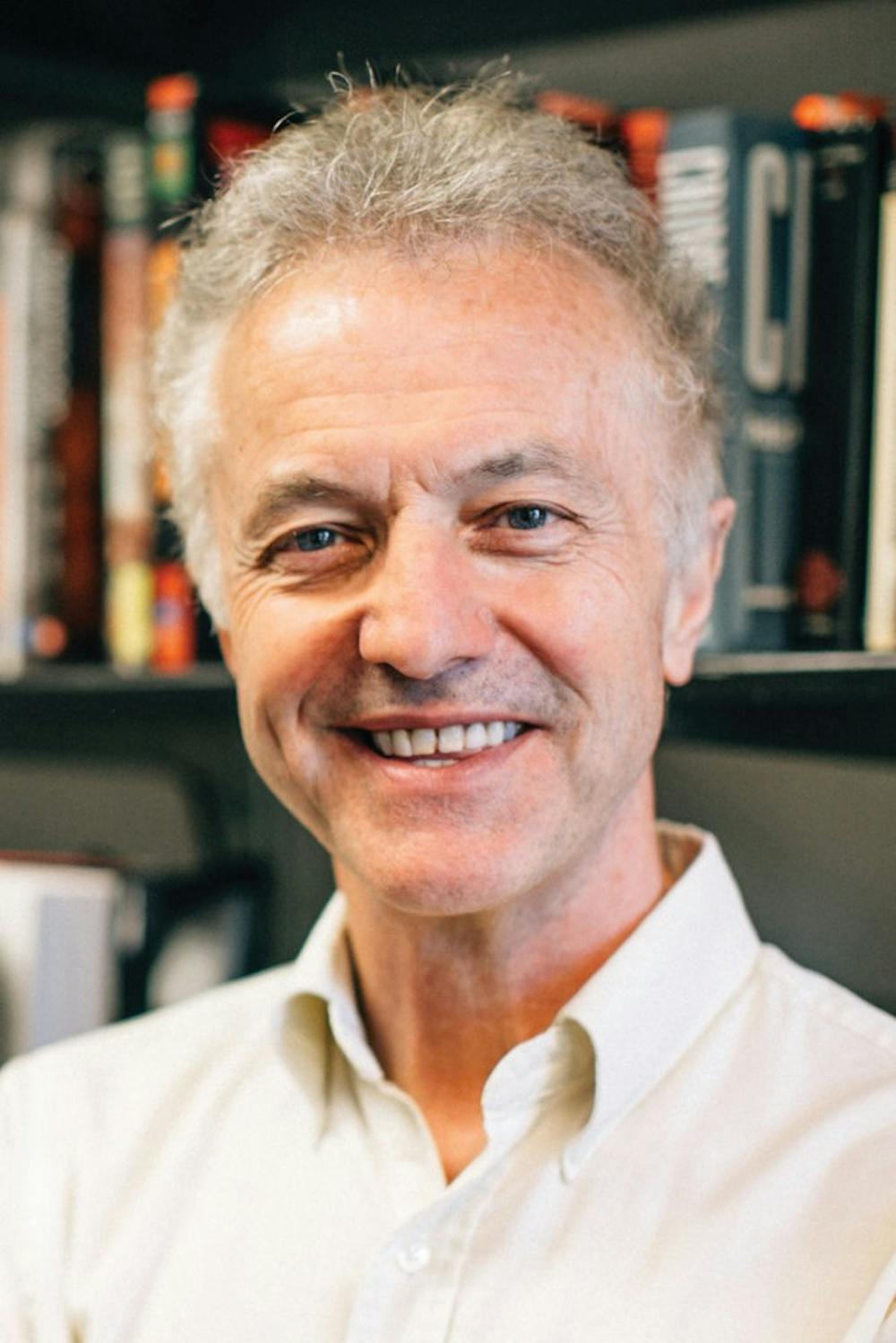Does man have free will? Perhaps not, according to professor Adrian Raine.
So what, then, decides the course of a human’s life? Raine offered his answer to the question at an event called “The Anatomy of Violence: Dissecting the Biological Roots of Crime,” put on by the Penn Lightbulb Cafe on Oct. 20.
As the world of science develops and discovers at an ever-increasing pace, many scientists have begun researching the brain, which has been deemed the final frontier of human anatomy. Recent discoveries show that the characteristics of an individual’s brain can be linked to one’s predisposition to committing violent crime and other vices.
The prefrontal cortex, Raine explained, harbors the majority of a person’s personality, decision-making and social behavior. Through both genetic and environmental factors, this area of the brain, as well as others, can be drastically altered in violent criminals and psychopaths.
One example he gave was that when mothers smoke during pregnancy, their babies are more than three times as likely as babies of non-smoking mothers to commit violent crime. Mothers who practice poor nutrition during a pregnancy yield children with two and a half times the likelihood to commit violent crime.
The important question Raine raised after making this point regarded the burden of responsibility. If an alcoholic mother has a child with a defective brain who eventually commits a crime, who should pay the price?
“I don’t think we have agency,” Raine said. “I don’t think we have free will. We are gene machines. We think we make decisions, but our brains are programmed to make these decisions. So if the brain is molded and sculpted and shaped by genes, early childhood and the lot, should man be responsible for his behavior? That’s a deep, deep question.”
The presence of such pressing moral and ethical issues resonated with the audience. College freshman Courteney Ly, who had to read Raine’s book for her writing seminar, took a new perspective from the talk.
“We tend to look at criminals and judge them as particularly bad people for making bad decisions,” Ly said. “But what we don’t realize is that often they can’t help what they’re doing.”
Such a new point of view was welcomed by Raine’s audience in the World Cafe. Many people said they felt enlightened by several of the points raised in the talk.
“What I thought was really interesting was the fact professor Raine showed that who we consider to be criminals and heroes actually have a lot of similarities,” Ly continued. “They both have abnormally low heart rates, and they both have this sense of fearlessness. That’s really interesting because, depending on the social environment, the same person could go down either path.”
While biology and genetics play a huge role in determining a person’s predisposition to certain scenarios, one’s environment could be pivotal in finalizing the outcome.
Professor Raine left his listeners by challenging them to apply the knowledge from his talk to do what they could to foster healthy social environments.
“The social environment is critical,” Raine said. “Let’s not forget that. That’s something we can change.”
The Daily Pennsylvanian is an independent, student-run newspaper. Please consider making a donation to support the coverage that shapes the University. Your generosity ensures a future of strong journalism at Penn.
DonatePlease note All comments are eligible for publication in The Daily Pennsylvanian.









